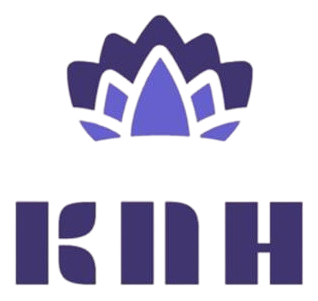Boundary Wall Plaster Work in UAE: A Complete Guide
In the ever-evolving architectural landscape of the United Arab Emirates, the aesthetics and durability of buildings—residential, commercial, or industrial—are of prime importance. One often-overlooked yet crucial aspect of any property is the boundary wall. These walls are not just physical barriers but also reflect the architectural character and security of the space. And to enhance both their visual appeal and structural longevity, boundary wall plastering plays a vital role.
This blog explores the essentials of boundary wall plaster work in the UAE, its benefits, types, materials used, application methods, and tips for choosing the right contractor.
Why Plaster Boundary Walls?
Boundary walls in the UAE face extreme weather conditions: intense sunlight, sandstorms, heavy rains (especially in northern Emirates), and humidity. Left untreated, these walls can crack, peel, or deteriorate over time. Plastering serves multiple purposes:
- Protection Against Weather: A quality plaster coat protects the wall from harsh elements like UV rays, rain, and dust.
- Durability: It strengthens the structure by preventing water seepage and erosion.
- Aesthetic Finish: Plastering offers a clean, smooth surface, ideal for painting or decorative finishes.
- Low Maintenance: Properly plastered walls require minimal upkeep.
- Insulation Support: Plastering helps in improving thermal insulation, especially beneficial in UAE’s hot climate.
Common Types of Plaster Used for Boundary Walls
1. Cement Plaster
The most commonly used type for boundary walls in the UAE. It consists of a mix of cement and sand, usually in a 1:4 or 1:6 ratio.
- Advantages: Durable, strong adhesion, cost-effective.
- Best For: Residential compounds, commercial buildings, and villas.
2. Gypsum Plaster
While generally used indoors, some projects use special weather-resistant gypsum-based products for smooth finishes.
- Advantages: Fine finish, quick setting.
- Limitations: Less water-resistant than cement plaster.
3. Lime Plaster
Used less frequently, but good for specific heritage or traditional-looking projects.
- Advantages: Flexible, breathable, and has self-healing properties.
- Used In: Renovation of heritage villas or traditional Arabic style buildings.
4. Acrylic or Polymer-Based Plaster
More advanced and expensive, these are flexible, crack-resistant, and come in decorative textures.
- Advantages: Long-lasting, modern finish, high weather resistance.
- Used In: Luxury villas, hotels, or premium properties.
Process of Plastering a Boundary Wall
Proper execution is key to long-term performance. Here’s how professional plastering is typically done:
1. Surface Preparation
- Cleaning the wall of dust, oil, or debris.
- Removing any loose material or paint.
- Wetting the surface for better plaster adhesion.
2. Mixing Plaster
- Using the right ratio of cement and sand.
- Adding waterproofing or bonding agents if required.
- Using mixers for consistent texture.
3. Application
- A base coat is applied using trowels or sprays.
- Leveling with straight edges or screed.
- Final smooth coat or decorative texture is applied as per design.
4. Curing
- Essential to prevent cracks and ensure strength.
- Walls are kept moist for at least 7–10 days after plastering.
Boundary Wall Plaster Finishes Popular in UAE
Depending on the project’s requirements, finishes vary:
- Smooth Finish: Common in modern villas or minimalistic architecture.
- Textured Finish: Adds dimension and hides minor imperfections.
- Pebble Dash: Popular in desert landscapes, gives a rugged look.
- Stucco or Decorative Designs: Often seen in Arabic or Mediterranean style homes.
Key Considerations for Plaster Work in UAE
1. Climate Factors
Use weather-resistant plaster mixes due to high heat, sandstorms, and occasional rain.
2. Sand Quality
Desert sand can’t be used directly due to its smooth texture. Proper washed sand is essential for strong bonding.
3. Waterproofing Additives
Especially important near coastal areas like Dubai Marina or Abu Dhabi Corniche where saltwater corrosion is an issue.
4. Government Regulations
Ensure work meets local municipality guidelines, especially for boundary walls along public roads or commercial zones.
Cost of Boundary Wall Plaster Work in UAE
Prices can vary based on the following:
- Wall height and total square meter area.
- Type of plaster and finish.
- Location (Dubai, Sharjah, Abu Dhabi may have different labor costs).
- Additional works like waterproofing or decorative elements.
Estimated Cost:
Starting from AED 18 to AED 35 per square meter for cement plaster. Decorative or polymer finishes can go higher, up to AED 50–70/m².
How to Choose a Reliable Plaster Contractor in UAE
- Experience: Look for contractors with proven plastering projects.
- Portfolio: Ask for before/after pictures.
- Warranty: A good contractor will offer at least 1-year service assurance.
- Materials: Make sure high-quality cement, sand, and additives are used.
- Reviews & References: Check online ratings or ask for references from past clients.
- Municipality Approval: Verify if the contractor is licensed and approved by local authorities.
Final Thoughts
Boundary wall plaster work in the UAE is more than just a cosmetic upgrade. It plays a crucial role in protecting your property, increasing its value, and enhancing curb appeal. Whether you’re building a new compound or renovating an old wall, investing in quality plaster work ensures durability and a beautiful finish that stands strong in the UAE climate.
Need Professional Help?
If you’re looking for reliable, affordable, and expert boundary wall plaster services in UAE, contact our team today. From initial inspection to perfect finishing, we deliver results that last.



